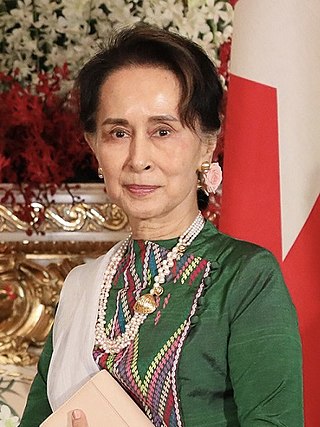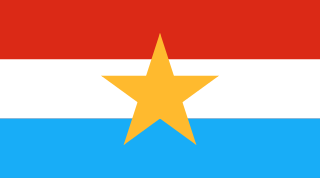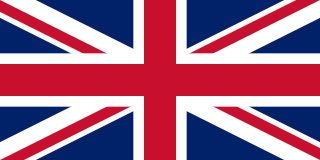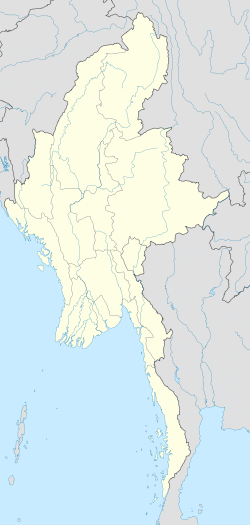
Daw Aung San Suu Kyi, sometimes abbreviated to Suu Kyi, is a Burmese politician, diplomat, author, and a 1991 Nobel Peace Prize laureate who served as State Counsellor of Myanmar and Minister of Foreign Affairs from 2016 to 2021. She has served as the general secretary of the National League for Democracy (NLD) since the party's founding in 1988 and was registered as its chairperson while it was a legal party from 2011 to 2023. She played a vital role in Myanmar's transition from military junta to partial democracy in the 2010s.

Myanmar, officially the Republic of the Union of Myanmar and also known as Burma, is a country in Southeast Asia. It is the largest country by area in Mainland Southeast Asia and has a population of about 55 million. It is bordered by Bangladesh and India to its northwest, China to its northeast, Laos and Thailand to its east and southeast, and the Andaman Sea and the Bay of Bengal to its south and southwest. The country's capital city is Naypyidaw, and its largest city is Yangon.

The Tatmadaw or Sit-Tat is the military of Myanmar. It is administered by the Ministry of Defence and composed of the Myanmar Army, the Myanmar Navy and the Myanmar Air Force. Auxiliary services include the Myanmar Police Force, the Border Guard Forces, the Myanmar Coast Guard, and the People's Militia Units. Since independence in 1948, the Tatmadaw has faced significant ethnic insurgencies, especially in Chin, Kachin, Kayin, Kayah, and Shan states. General Ne Win took control of the country in a 1962 coup d'état, attempting to build an autarkic society called the Burmese Way to Socialism. Following the violent repression of nationwide protests in 1988, the military agreed to free elections in 1990, but ignored the resulting victory of the National League for Democracy and imprisoned its leader Aung San Suu Kyi. The 1990s also saw the escalation of the conflict involving Buddhists and Rohingya Muslims in Rakhine State due to RSO attacks on the Tatmadaw forces, which saw the Rohingya minority facing oppression and, starting in 2017, genocide.

Yangon, formerly romanized as Rangoon, is the capital of the Yangon Region and the largest city of Myanmar. Yangon served as the capital of Myanmar until 2006, when the military government relocated the administrative functions to the purpose-built capital city of Naypyidaw in north central Myanmar. With over five million people, Yangon is Myanmar's most populous city and its most important commercial centre.
The Burmese alphabet is an abugida used for writing Burmese. It is ultimately adapted from a Brahmic script, either the Kadamba or Pallava alphabet of South India. The Burmese alphabet is also used for the liturgical languages of Pali and Sanskrit. In recent decades, other, related alphabets, such as Shan and modern Mon, have been restructured according to the standard of the Burmese alphabet

The Karen, also known as the Kayin, Kariang or Kawthoolese, are an ethnolinguistic group of Tibeto-Burman language-speaking people. The group as a whole is heterogeneous and disparate as many Karen ethnic groups do not associate or identify with each other culturally or linguistically. These Karen groups reside primarily in Kayin State, southern and southeastern Myanmar. The Karen account for around 6.69% of the Burmese population. Many Karen have migrated to Thailand, having settled mostly on the Myanmar–Thailand border. A few Karen have settled in the Andaman and Nicobar Islands, India, and other Southeast Asian and East Asian countries.

The Burma campaign was a series of battles fought in the British colony of Burma. It was part of the South-East Asian theatre of World War II and primarily involved forces of the Allies against the invading forces of the Empire of Japan. Imperial Japan was supported by the Thai Phayap Army, as well as two collaborationist independence movements and armies. Nominally independent puppet states were established in the conquered areas and some territories were annexed by Thailand. In 1942 and 1943, the international Allied force in British India launched several failed offensives to retake lost territories. Fighting intensified in 1944, and British Empire forces peaked at around 1 million land and air forces. These forces were drawn primarily from British India, with British Army forces, 100,000 East and West African colonial troops, and smaller numbers of land and air forces from several other Dominions and Colonies. These additional forces allowed the Allied recapture of Burma in 1945.

The Myanmar national football team represents Myanmar in men's international association football and is governed by the Myanmar Football Federation.

The Rohingya people are a stateless Indo-Aryan ethnic group who predominantly follow Islam and reside in Rakhine State, Myanmar. Before the Rohingya genocide in 2017, when over 740,000 fled to Bangladesh, an estimated 1.4 million Rohingya lived in Myanmar. Described by journalists and news outlets as one of the most persecuted minorities in the world, the Rohingya are denied citizenship under the 1982 Myanmar nationality law. There are also restrictions on their freedom of movement, access to state education and civil service jobs. The legal conditions faced by the Rohingya in Myanmar have been compared to apartheid by some academics, analysts and political figures, including Nobel laureate Bishop Desmond Tutu, a South African anti-apartheid activist. The most recent mass displacement of Rohingya in 2017 led the International Criminal Court to investigate crimes against humanity, and the International Court of Justice to investigate genocide.

The British colonial rule in Burma lasted from 1824 to 1948, from the successive three Anglo-Burmese wars through the creation of Burma as a province of British India to the establishment of an independently administered colony, and finally independence. The region under British control was known as British Burma, and officially known as Burma from 1886. Various portions of Burmese territories, including Arakan and Tenasserim, were annexed by the British after their victory in the First Anglo-Burmese War; Lower Burma was annexed in 1852 after the Second Anglo-Burmese War. The annexed territories were designated the minor province of British Burma in 1862.

Insurgencies have been ongoing in Myanmar since 1948, when the country, then known as Burma, gained independence from the United Kingdom. It has largely been an ethnic conflict, with ethnic armed groups fighting Myanmar's armed forces, the Tatmadaw, for self-determination. Despite numerous ceasefires and the creation of autonomous self-administered zones in 2008, armed groups continue to call for independence, increased autonomy, or federalisation. It is the world's longest ongoing civil war, spanning almost eight decades.
The Burmese calendar is a lunisolar calendar in which the months are based on lunar months and years are based on sidereal years. The calendar is largely based on an older version of the Hindu calendar, though unlike the Indian systems, it employs a version of the Metonic cycle. The calendar therefore has to reconcile the sidereal years of the Hindu calendar with the Metonic cycle's near tropical years by adding intercalary months and days at irregular intervals.

Banmauk Township is a township in Katha District in the Sagaing Region of Myanmar. The principal town is Banmauk.
Nawngsansaing is a village in Homalin Township, Hkamti District, in the Sagaing Region of northwestern Burma. It is located north of Hmangin.
Hmangin may refer to several places in Burma:
Hmangin is a village in Banmauk Township, Katha District, in the Sagaing Region of northern-central Burma.

The 969 Movement is a Buddhist nationalist movement opposed to what they see as Islam's expansion in predominantly Buddhist Myanmar (Burma). The three digits of 969 "symbolize the virtues of the Buddha, Buddhist practices and the Buddhist community". The first 9 stands for the nine special attributes of the Buddha and the 6 for the six special attributes of his Dharma, or Buddhist Teachings, and the last 9 represents the nine special attributes of Buddhist Sangha. Those special attributes are the Three Jewels of the Buddha. In the past, the Buddha, Sangha, Dhamma, the wheel of Dhamma, and "969" were Buddhist signs.

The Rohingya genocide is a series of ongoing persecutions and killings of the Muslim Rohingya people by the military of Myanmar. The genocide has consisted of two phases to date: the first was a military crackdown that occurred from October 2016 to January 2017, and the second has been occurring since August 2017. The crisis forced over a million Rohingya to flee to other countries. Most fled to Bangladesh, resulting in the creation of the world's largest refugee camp, while others escaped to India, Thailand, Malaysia, and other parts of South and Southeast Asia, where they continue to face persecution. Many other countries consider these events ethnic cleansing.

A coup d'état in Myanmar began on the morning of 1 February 2021, when democratically elected members of the country's ruling party, the National League for Democracy (NLD), were deposed by the Tatmadaw — Myanmar's military — which then vested power in a military junta. Acting President of Myanmar Myint Swe proclaimed a year-long state of emergency and declared power had been transferred to Commander-in-Chief of Defence Services Senior General Min Aung Hlaing. It declared the results of the November 2020 general election invalid and stated its intent to hold a new election at the end of the state of emergency. The coup d'état occurred the day before the Parliament of Myanmar was to swear in the members elected in the 2020 election, thereby preventing this from occurring. President Win Myint and State Counsellor Aung San Suu Kyi were detained, along with ministers, their deputies, and members of Parliament.

The Myanmar civil war, also called the Burmese Spring Revolution, Burmese civil war or People's Defensive War, is an ongoing civil war following Myanmar's long-running insurgencies, which escalated significantly in response to the 2021 military coup d'état and the subsequent violent crackdown on anti-coup protests. The exiled National Unity Government and major ethnic armed organisations repudiated the 2008 Constitution and called instead for a democratic federal state. Besides engaging this alliance, the SAC also contends with other anti-SAC forces in areas under its control. Hannah Beech of The New York Times observed the insurgents are apportioned into hundreds of armed groups scattered across the country.















